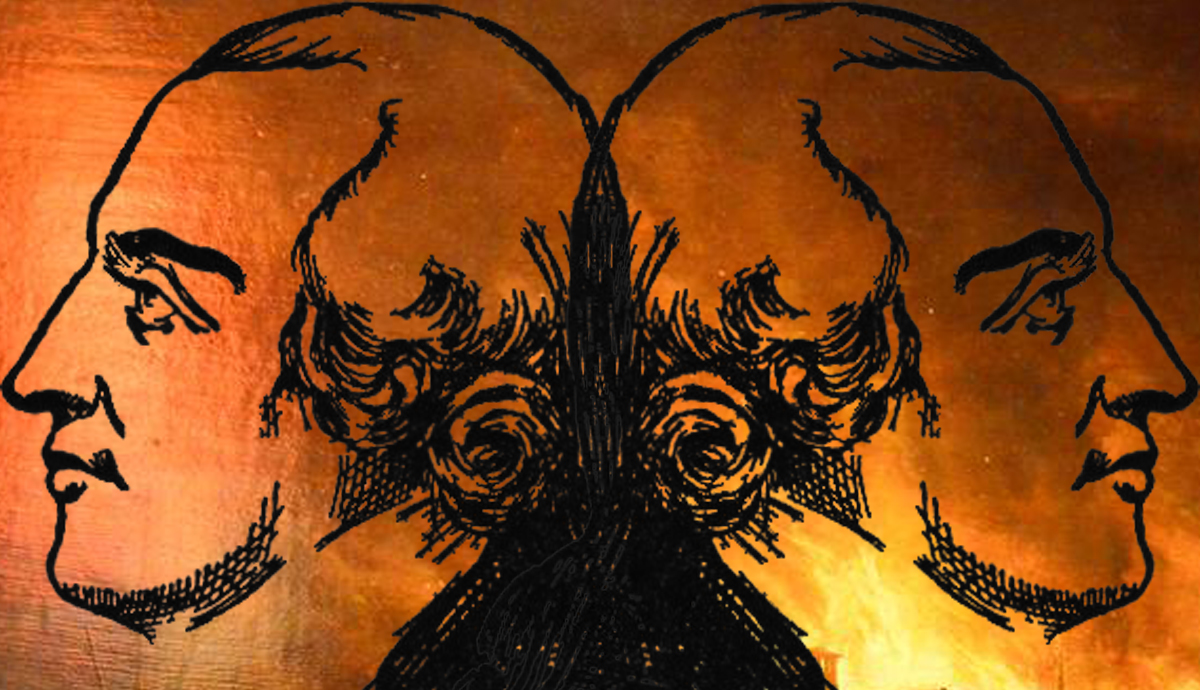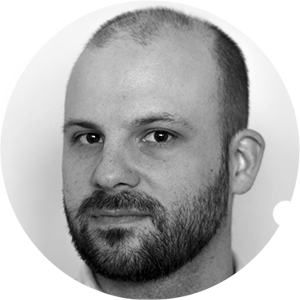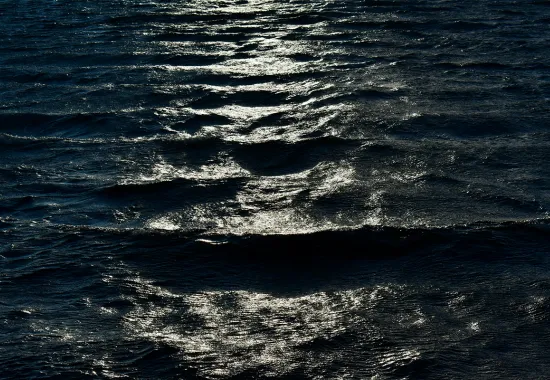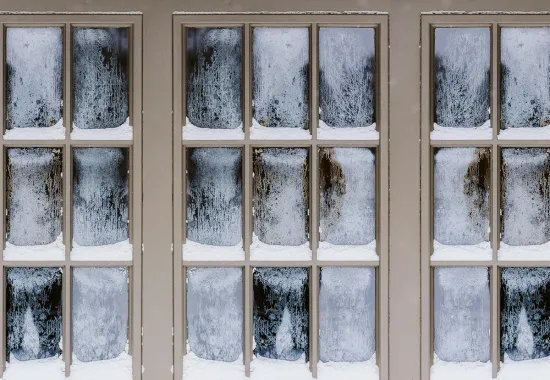The Burning of New London
We were moving out into the mouth of the river, and the entire city was burning behind us. The flames ran red along Bank Street—a thousand bright flags snapping in the wind. I turned to face the front of the tiny boat. Benedict Arnold was still there, still heaving against the oar locks, oars sloshing against the chop. We were getting pretty near the Ledge Light, a spot where I took Hannah once, before I’d left New London, where she and I caught all those fat bluefish on a morning so much like this. It felt like a long time ago—when I could still call her my wife.
It’s true—he looked just like Benedict Arnold should: a little, pudgy, ham-colored man, and rough in the face—that nose sharp as a crease in his tricorn hat. He was older though than I had imagined. Tired maybe of his running away and wearied by working against the waves.
And it occurred to me that we were in too small a boat.
“How far out are you taking us?” I said.
“Not far, trust me.” Well he sounded like an American.
“I don’t think this thing is going to make it all the way to England,” I told him.
Benedict Arnold looked up at me from the corner of his eye, kind of disgusted.
It was a warm fall day, like you’d like to be out picking apples or be out on a boat, really, fishing for blues or for stripers or tuna. I unzipped my nylon wind breaker and pushed up the sleeves. The morning’s mist still rose from low on the water, where the sun scattered its heat like silver coins. Everything was perfect down to the patches of red in the hills where the maples had started turning. Perfect except that the red was also running through the city, sending up blankets of soot. And over the slosh of the oars, I felt from far off, heavy cannon compressing the air. The mouth of the river was lonely with calm.
I thought of the story I was told when I was in fourth grade: that Arnold “turned-coat,” as Mrs. Wilvershire called it—came back here and set New London ablaze as demonstration of his recently russeted allegiance to the colonists.
“An entire nation will hate you for this,” I said to Benedict Arnold. “School children will learn that ‘Benedict Arnold’ is just another name for the Devil!” I don’t know if Mrs. Wilvershire had ever used exactly that phrase, but it seemed sufficiently threatening.
I helped Benedict Arnold tie off the row boat, then stood up as he did, looking back at the burning city.
Benedict Arnold didn’t seem to care much about my demonic comparisons. He kept rowing—if anything more forcefully now—chuffing wind, with the buttons jangling on the breast of his coat. I closed my eyes and tried to remember why I was here. I had the feeling that I’d left something back on the shore, my wallet or a granola bar, something you’d forget on the front seat of the car. My whole head was filled with the salt of the ocean and the smoke, keen as a fire of leaves.
“The devil?” Benedict Arnold said. “And what about you?”
I opened my eyes. “Well, I’m pretty sure the devil doesn’t exist,” I said.
Benedict Arnold shook his head at this, his ragged, graying ponytail swishing behind him.
I tried to explain. It wasn’t “evil” per se, to skip out on the revolution. He’d been kind of jaked by the Continental Congress. At Ticonderoga he was a genuine hero and, for whatever reason, Ethan Allen got all the credit. Washington, it seemed to me, could be a bit of a megalomaniac.
“Still,” I said, “you grew up not twenty minutes down the road from here. Frankly, it’s unkind.” I was being diplomatic. The truth was worse: People were losing their homes. Some were dying.
“Here,” he said, passing me a length of rope. “Give us a hand.”
I hadn’t realized it for all my talking, but Benedict Arnold had nestled us up alongside the rocky island of the Ledge Light. A tumble of fog was spilling in from Long Island Sound—the fog of dreams, the playwright’s fog that smothers with memory. I helped Benedict Arnold tie off the row boat, then stood up as he did, looking back at the burning city. I was surprised by the feeling its sparks kindled in me then: In a way, my home town had never looked so proud. Where on similar fall days I had previously seen only a row of squat plain buildings, the iron silhouettes of rooftops, cupolas, and steeples now became a stately panorama through the flame and ash. I got the sense of a place galvanized by tragedy. Benedict Arnold withdrew a spyglass from the breast of his jacket. He looked off towards Bank Street, scanning the shore and focusing the instrument with precise twists of his fingers.
Certainly, the only sounds were of the waves and of our wooden hull nudging the lighthouse rock, but with these rhythms, I thought I heard too a solemn commotion of voices. The comradely calls of the militia. These were my brave neighbors, or those that would have been my neighbors had I lived there still, calling for buckets of water and for arms to lift children and the aged from blazing timbers.
I might have also heard Hannah’s voice, muddled in the waves. Who was she calling for?
I wanted to be there, to be one of the heroic citizens, risking injury or death for the my community’s welfare. It was what I had always wanted when I had lived there, to be useful and good. I didn’t belong in this coward’s company, scurrying off to our enemies.
“Bring me back.” I said. But Benedict Arnold would not bring even the spyglass from his face.
“Please,” I said. “I think, I’ve left something on shore.”
A wind was growing from out in the Sound, moving through the fog.
“Peggy,” he whispered. “Peggy.”
I knew this was his wife, who was twenty years old, with whorls of hair like a black fog, whom he worried after in a way that made me uncomfortable. The older man who is more like a father than anything. A damp forehead-kissing love.
His whispering made me remember Hannah, again. We were married just a year before I left New London. Ours had been a sudden romance. We met at a birthday party in June where we were the only single guests. She was a florist who owned a small shop downtown, and I was nothing much—a part-time painter of houses, a part-time drinker. A blotter of walls and ceilings. Hannah taught me how to keep a garden that summer, and how to sail, and how to open oysters with the point of a knife. In the early fall, I took her fishing and never told her it was a borrowed boat.
I believed that being with Hannah, I could become someone else—someone worth being.
It was late at night sometime in November, I called her up and just asked. She arranged day-lilies for our wedding, bright as new pennies, and I was, more than anything, thankful.
When I left her, I thought we were so strong. Not like those people who mewl over one another because of their small worries. I could still see her, sitting next to me in the coffee shop on the day we left New London and drove to the airport in Providence. We were waiting outside security, watching the cashier of the cafe—he was a blind man, who wore a name tag embossed with the name, “Jarvis,” and next to that, dots of braille, which could have said anything. Apparently all of the employees were blind, because the register talked with this computer voice—this man, Jarvis, fed money through a slot on the drawer, and the voice told him how much change to make. I told Hannah maybe this was some kind of work program. An opportunity, I said. She told me she thought it was, in a way, beautiful.
My voice was strange to my own ears. I knew he could feel my anger sway the tiny boat and finally, Benedict Arnold dropped the spyglass to his side and faced me. His pink nose pointed to me the way an accusatory finger points.
Hannah was wearing my wool sweater, blue with a hood and holes where the pocket’s stitching was coming undone. It was speckled with white latex-exterior from some job I’d done with a messy roller. I tucked the hair back behind her ear.
“Do you have to go?” Hannah asked.
“I think so,” I said.
The truth was that I didn’t have to. I wasn’t being forced. I had been offered work by a friend’s father—a nine month contract managing the painting of new construction projects in northern Iraq. It paid forty dollars an hour, plus performance bonuses and benefits, and it seemed to me that I’d be doing some good in the world for once. I’d gotten my security clearance, signed the papers and the friend’s father’s company would expect me there of course, but I could have backed out at any time. The truth was, I left because I still was not the man I wanted to be. I thought that going far away might change me. I thought I’d never see an chance like this again.
I saw the blind cashier turn to us and he looked at me as if he heard something too thick in my voice.
I said, “Time goes fast, don’t worry.”
Hannah said, “Come back soon.”
And I said I would. I had always been good to my word.
•
Benedict Arnold exhaled over the lens of his glass and polished it on the sleeve of his coat. He checked the position of the sun, sinking fast toward the Sound.
“Why are you bringing me out here?” I said.
“Because we are brothers in arms.”
“You’re no kind of brother to anyone,” I said, and I held out my wrists as if to show they were nothing like his. “Me, I’m a patriot. I’ve loved every inch of my country. And I’ve worked for my reputation. I went abroad and showed the world our great generosity. I helped build a hospital and a water treatment plant.”
I didn’t mention that the hospital was abandoned and that the treatment plant pumped water the color of cheap tequila. That wasn’t my fault. I just painted the walls.
“I am a loyal American,” I said. “Ask anyone who knows.”
“Yes loyalty,” he said. He rapped the spyglass onto his open palm. “To whom are we loyal? When we are children, we think that we are loyal to almighty God. The loyalty of Fear. And for some time I thought we were loyal to causes. The Grand Idea. I was loyal to a teacher once. And once to a General. A King! Ha. I have had all types. My country and my fellow man. I can tell you this: I have always placed loyalty where it didn’t belong. There is only one place where loyalty can thrive. And Love, well...”
His mouth tightened as if he were about to say something else pithy, but I cut him off. I was tired of his whole stony act. I wanted to hurt him now.
“You will escape to England,” I said, “to people who will never fully trust you, a man known for his betrayal. In your humiliation, you will challenge a near stranger to a duel. After you’ve limped off your paces, you’ll turn, and your very pistol will fail you. The blast will toss your old body to its knees, and the stranger standing over you, steel in his hand, will pity your wretchedness and leave you weeping in the grass. Your wife’s heart will wither, fragile with fever.”
I was surprised at my own declarations. Apparently, Mrs. Wilvershire had been an unusually effective instructor of early American History. My voice was strange to my own ears. I knew he could feel my anger sway the tiny boat and finally, Benedict Arnold dropped the spyglass to his side and faced me. His pink nose pointed to me the way an accusatory finger points. The air was quickly going cold.
“Is that all?” he said. “How nice it must be to know.”
He placed the spyglass in my hand and told me to look.
“Love is no place for the loyal,” he said.
I oriented myself toward the city where I had seen him watching. It was over by Shaw’s Cove, within walking distance of the Boat Yard. At first, I was surprised by how strong the magnification was. There were the dry docks and the warehouses full of stacked wood that had just begun to smolder. Everything was so close, as if I were standing on a pier. The air rippled the way it does in the heat of a flame. German lenses, I figured.
But then I caught sight of the house.
It was a white Victorian, like the ones Hannah and I used to covet on Sunday mornings as we drove around those neighborhoods, speculating on the lives of those wealthy families inside the old houses—how they would smile at each other, their smiles white and straight as the shutters in the windows: the smiles of a dentist’s family. “So full of dentists,” we used to joke, as we coasted slow down those narrow, elm shadowed streets. We were in no hurry to return to our one bedroom apartment in our neighborhood stalked by feral cats.
The house was striking not only because it was out of place, far off from the strand, or because such a house should not exist at the same time as this musty wool swaddled man beside me, but also because in the midst of all that fire it stood untouched. I couldn’t understand why it had been spared. Around it swarmed Hessians in bullet-shaped hats. Some rummy Red Coats who clustered around the mailbox hoisted sabers and torches.
“You think this makes up for it, Benny?” I said. “Saving one house doesn’t mean squat. Besides that house doesn’t even belong there, that’s a dentist’s house.” It’s true. Its trim was white as porcelain veneers.
Benedict Arnold sighed, and then he said something strange. He said, “Every betrayal begins in love.” Then he lifted the end of the glass.
I saw on the slated roof, a white rail surrounded the widow’s walk. I saw Hannah leaning there—squinting, I thought—in the drifts of smoke. I was alarmed at first. I worried that she was in danger. But then I saw how she had her hand cupped over her eyes. It was a casual gesture, as if she were simply looking far off on a bright day. She was in her sea-shell dress—navy and printed with those tiny white cockles and scallops—the one she wore on the day we met, in a backyard overlooking the ocean.
Some days while I was in Iraq, I would imagine Hannah wearing it. We would call each other. Not everyday, but often enough, and we talked out our days in lists of obligations and weather forecasts. I told her how tired I was—of the work and of the hot days, and the nights that sucked every bit of the heat from the air, leaving the lumpy land around me like the skin of the moon. And Hannah told me how things back in New London were just the same as always, the fog and the water and the sand on the roads—the trimmed stems of roses. Sometimes the phone would go quiet. We had exhausted our lists, and I tried to think of the sea-shell dress and living close to Hannah’s body. The cotton hugged firmly around her ribs, and its thin straps ran over her shoulders and back along the blades. I thought of Hannah in just this way, looking out in my direction. I thought of myself as the fabric around her.
“Oh, the hard part is done,” Benedict Arnold said. “Now all you do is raise your arm and flap.”
But it didn’t last. Parts of the dress began to fade from my memory: the way the skirt would fall around her knees, the clusters of shells patterned across her breast. In those silent moments on the phone, eventually I began to see nothing—or only the fog thickening around the shore.
I wish I could thank Hannah now for reminding me how she looked—for thinking to wear it that morning in the Victorian house, slipping it up over her ribs with no memory of what would happen: the smoke and the flames. It pacified me to think of her in the early sun, closing the zipper and the clasp, smoothing the pleats at the waist. It had always been my favorite.
But my peace was short lived, there in the dinghy, knocking against the lighthouse rock.
Benedict Arnold must have seen how calm I had become, because he said to me, “I think you’ve misunderstood.”
It gave me a panic, what I saw next: that the Hessians and Red Coats were looking back to us. Some aimed spyglasses of their own. Others stared anxiously, ravenously even, at the Victorian house. I saw that they didn’t mean to spare anyone. They were waiting for a signal.
Back inside the boat, Benedict Arnold was holding a red flag furled around a copper rod. He took off his tricorn hat. His scalp was only thinly covered.
“They’re waiting for you,” he said. “To tell them when to set the fire.”
“These aren’t my men,” I said. I’d never seen them before.
“Then why do they wait?”
“I don’t know,” I said. “I don’t even remember how I got here.”
“Aren’t you a hero?” he said. “Don’t you believe in your cause?”
I thought of the cups of bad coffee Hannah and I had bought while we waited for the plane. It was the last real thing I remembered—both bitter and weak, only the way that cooling reality can be. I am sorry to admit it, but everything about my life with Hannah had begun to taste the same. Every day I put on the same paint splashed pants and wondered when things might finally change. I would look to her still dozing in bed, and there would be her hand sticking out from beneath the thin sheets. Her nails were chipped and I saw the callouses on her fingertips and the heel of her palm—skin made thick from stripping the stems of flowers. Even in her sleep, I saw that she was the stronger of us. It was why I left.
I remembered in the airport, tilting back the last grains of the coffee and being thankful to be finished with it.
“It’s time,” Benedict Arnold said, as if he were reading my mind. “You’ve waited long enough.”
There was a darkness in the sky that wasn’t just from the smoke, or else it was that the smoke had gathered into dense and angry tumors above us. Without the gentle touch of the sun, the water also became agitated, shoving and jostling our puny boat.
Taking back the spyglass, Benedict Arnold handed me the flag. It was cold and heavy wool, damp with the tide’s growing spray.
“So,” he said. “Are you ready to give the command?”
“Haven’t I been kind?” I said. I was asking myself I suppose. “Haven’t I been true?”
I thought about the hooded sweater Hannah wore on the day I left, how the wool was damp with tears and how it was easy to be the one who couldn’t cry, who didn’t know how. I wasn’t leaving because of a heroic cause or even because of desperation. It was just a seat on a jet that would take me someplace else. I suppose I thought that somewhere else I’d find a burning city, somewhere else I could be heroic. But it was only distance and the leaving would do nothing.
Hannah said, “You don’t have to leave.”
I said, “Time goes fast.”
She said, “Come back soon.”
And I would.
I’d come back, but not before passing behind the glass screen in the airport terminal, watching Hannah wiping her eyes on my sleeve. I watched through the glass like the smoke and the distance to the shore, like the angry ocean. And who were we then? When I’d come back to a row boat in the mouth of the river?
“Oh, the hard part is done,” Benedict Arnold said. “Now all you do is raise your arm and flap.”
•
And in Iraq too, there was smoke—a huge fleshy figure wallowing in the sky that sometimes rolled in a change of the wind, smothering the entire city beneath its heavy soot. And everything stank of charring fat. And in the mornings, I spat up a foul black taste. So, there were rumors of continued mortar shelling, and for weeks, I thought this body of smoke plumped up from their wreckage. But it turned out that I was wrong.
One afternoon, one of the army guys took me out there.
“You’ve got to see it,” he said.
The burn pit
It was a massive crater, ringed by slabs of blackened blast wall—a jaw of decaying teeth. Down inside they emptied the trash: plasitc and paper and shit. And it all was burned. The barrels and broken wood. The refuse of a war. A backhoe shoveled it down into the burning earth and released some dark spirit up from the flames. A chameleonic fire that went blue, orange, yellow, green.
That night I got drunk on smuggled Hajji juice and sniffed the first of many tabs of Deployment Formulary Vicodin. I knew I wasn’t really going back.
•
With the spyglass, I looked up where Hannah stood on the roof gazing off toward the graphite clouds. She was shivering. Time seemed to be collapsing: we had passed through all of Autumn in an hour. A strong wind blew over us all, and in the distance I heard another loud burst, though this time the sound was coming from the sky.
I couldn’t stand to stay on the boat anymore. I moved to the edge and put one foot up on the gunwale, testing my weight. I shouted her name with every bit of my breath, but Hannah was motionless. Again and again, I yelled. It was useless.
“It’s too far off for that,” Benedict Arnold said. He shook his head in his aggravating way.
“It’s not far at all,” I said. “I could swim it from here.”
“Ha! It’s a league or more,” he said. “And before long, the storm will be chasing behind.”
As if to prove myself, I stood up on the thwart and looked down at the water. Hannah was both near and far from me. I was both in the shallows and over the greatest trench. I thought I saw flashing through the water, a huge and jellied eye.
“Untie the boat,” I demanded. “I’m rowing us back.”
Benedict Arnold picked up both the oars and heaved them out into the Sound. They were lifted by the waves and crested quickly away.
“Enough!” he said. His voice was immense now and his pink face flushed to flame. “The choice has been made. Now give the signal.”
I clutched the flag close to my chest, ready to dive into the water if he tried to take it from me. It was clear that I would have to make the swim.
I would take one last look at Hannah, my love, my lost wife, in case I failed, exhausted by the water. A final beacon. She wasn’t turned towards me anymore but back at the city. The strong wind was blowing her dress like a flag marked with shells. And I saw then that she was joined by someone coming up through the square door in the roof. At first I couldn’t see who it was, only that he was carrying something. Hannah reached out and took it, a blue sweater. She pulled it over her head and tucked her hair into the hood and walked again to the rail. And there I saw someone who looked like me standing with her, his arm around her waist. He was some other version of me, the man who I was once or could have been. She looked happy with him.
“See now,” Benedict Arnold said. “What’s done is done”
She sank into a house that was never ours, but should have been.
Recommended
The Monstera
The Wild Women of Brigantine
The Salamander






